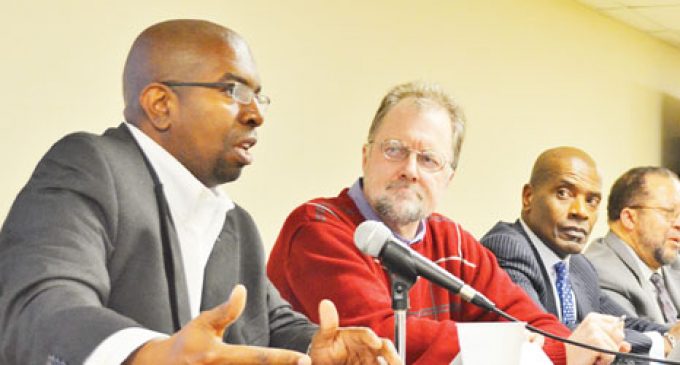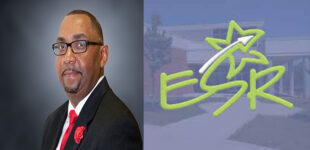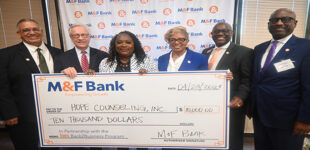Panel addresses domestic violence among blacks

A panel discussion – sponsored by Family Services and Winston-Salem State University – tackled domestic violence in the black community on Oct. 30 on the WSSU campus.
During the discussion, District Court Judge Denise Hartsfield, Legal Aid of North Carolina’s Hazel Mack, Emmanuel Baptist Church Pastor Dr. John Mendez, WSSU Professor Shawn Ricks and Bernetta Thigpen, Northern Piedmont Region director for the NC Council for Women, debated the causes and aggravating factors of domestic violence in the black community, and offered suggestions on how community members could tackle the issue more effectively going forward.
“The nature of women’s oppression is global and historical,” observed Mendez, who is currently studying at the Institute of Contemporary Psychotherapy and Psychoanalysis in Washington, D.C. “It did not just start today but what is, I think, novel is that there’s a greater movement to address the issue.”
While the issue is as old as time, the United States government only began to take a stand on it in the mid ‘90’s, when the Violence Against Women Act was passed, noted Thigpen, whose agency provides services for victims of domestic violence and sexual assault and provides guidance for lawmakers with regard to the issues. In the black community, outsiders are often reluctant to get involved in a domestic dispute, and victims often wait until the situation is “near lethal” before reaching out for help, she said.
“For years and years and years, we have said that this was a family issue, this was an issue that should not be talked about,” she stated. “It’s a secret in the African American community.”
Mack, whose organization operates a Domestic Violence Prevention Initiative and provides emergency-only services, such as obtaining and enforcing protection orders for low income clients, said American society as a whole is complicit in the horrendous acts that are perpetrated against men and women across the nation in their own homes.
“Violence is an acceptable behavior in America; it is okay to hurt other people – we see it everyday in so many ways,” said Mack, a veteran litigator and well known civil rights advocate. “There are people who have come to accept violence because they think that that actually is an expression of love.”
In order to truly address the issue, society must first change the conversation surrounding domestic violence. While victims of color could benefit from greater cultural sensitivity and African American representation within the agencies that serve them, panelists contended that the larger burden falls on the community as a whole. By exposing young people to positive black role models, educating them about healthy relationships, and taking a stand against violence wherever it occurs, the community have the power to fight back against domestic violence and ensure a safer future for everyone concerned, they said.
“We are trying to empower people,” commented Ricks, who also serves as a motivational speaker. “If you think about it, if you empower one person, that person really has such a powerful trickle down effect.”
Mendez said caring for those who suffer in silence is paramount, but personal responsibility on the part of the victims is also an important component in changing their outcomes.
Patricia Eaddy, who has directed WSSU’s Office of Interpersonal Violence Prevention since its inception more than a year ago, said there is a need for such conversations at the school.
“Domestic violence and dating violence seems to be a really big issue on campus,” said Eaddy, who has worked in the field for 25 years. “…For this campus, within the last year, we’ve seen an increase in domestic violence issues.”
DeWanna Hamlin, coordinator of Family Services Prevention and Education for the Safe Relationships Division, said she was hopeful that the panel discussion, which included a broad cross-section of experts, would shed some light on the nature of healthy relationships and educate the audience about what members of the community can do to help build a safer and healthier society.
“I want us to have an honest conversation about where we are in our community,” said Hamlin, adding that she and her colleagues strive to educate people about healthy relationships at as early an age as possible. “I think in terms of prevention and helping our youth in the community to understand what a healthy relationship is. We want to educate them about relationships, about habits, about what’s healthy and what’s unhealthy – a lot of people don’t get that information.”
Hamlin thanked the panelists for offering “authentic, transparent and real” perspectives on such an important issue. The discussion was followed by a spoken word performance on domestic violence by Authoring Action.
Help for domestic violence victims is available seven days a week through Family Services’ 24 hour crisis line, 336-723-8125.

















